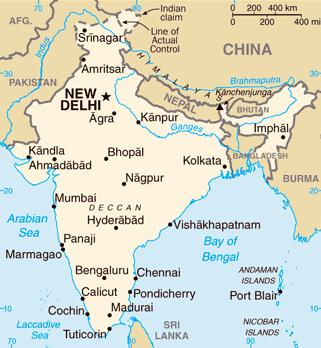As the presidential elections near, Sens. McCain and Obama will be forced to debate and articulate foreign policy positions before a nation transfixed by its fortunes in the Middle East. But what the candidates say, or fail to say, about the world beyond the Middle East, and particularly about the Asia-Pacific region, will have tremendous consequences for American strategy. In particular, both candidates must understand the importance of India to U.S. strategy in the Asia-Pacific. First, the candidates must understand how U.S. military campaigns and posturing in the Middle East can have serious national security consequences beyond that region. America's policy in the Middle East has great relevance for India. Should the U.S. commitment to Iraq truly last 100 years -- a possibility which has been suggested by Sen. McCain -- the reaction of fundamentalists in Pakistan could pose grave challenges to South Asian security, particularly in India and Afghanistan. Even if America's presence in Iraq "normalizes" and comes to be widely supported by a majority of the Iraqi people, it likely will remain a rallying cry for extremists, much as the Western military presence in Saudi Arabia did through the 1990s. Moreover, U.S.-India relations could become strained if the United States chooses an extremely aggressive posture towards McCain's "enemy No. 1," Iran. In such a case, India's growing dependence on Iranian energy resources will complicate Washington's relations with New Delhi. South Asia has long been an arena for great power balancing and intervention, sometimes with catastrophic consequences. During the Cold War, India helped drive the non-aligned movement and tilted toward the Soviet Union while the United States pursued global containment of communism and ran a proxy war through Pakistan to support Afghanistan's mujahedeen. That policy helped bring an end to the Cold War but also helped facilitate the spread of international terrorism. India's non-alignment still resonates with many decision makers in the sub-continent, who fear that greater alignment with the United States may entangle India in American crises.
Obama, McCain Should Make U.S.-India Relations a High Priority

